If you have a blood glucose monitor, you may be able to switch from one unit to the other, although not all meters allow that. Check the manual for more information. If you want to convert the value by yourself, the conversion factors are: 1 mg/dL = 0.0555 mmol/L. 1 mmol/L = 18,018 mg/dL.. To convert from mg/dL to mmol/L, all you have to do is: Convert from mg/dL to mg/L. To do this, multiply the mg/dL value by 10 (1L = 10 dL). For example: 0.2 mg/dL × 10 = 2 mg/L. Find the molar mass of the substance at hand. For the sake of this example, let’s say we are talking about bilirubin, which has a molar mass of 584.66 g/mol.. Convert the molar mass from g/mol to mg/mmol.
![Lipid Levels [mmol/L (mg/dL)] [Mean SD] at Baseline, Week 4 and Week 8… Download Table Lipid Levels [mmol/L (mg/dL)] [Mean SD] at Baseline, Week 4 and Week 8… Download Table](https://www.calculatorway.com/wp-content/uploads/2023/07/mmol-l-to-mg-dl.jpg)
mmol/L to mg/dL calculator Calculatorway

Blood Glucose Conversion Tables
EDUCAZIONE E PREVENZIONE marzo 2018

mmol/l mg/dl換算 Printfog
![Easy HbA1c Conversion Chart [Free PDF]](https://thegeriatricdietitian.com/wp-content/uploads/2022/08/Copy-of-Copy-of-PDF-Conversion-Chart-2-1-1536x1187.jpg)
Easy HbA1c Conversion Chart [Free PDF] The Geriatric Dietitian

Fillable Online Umrechnungstabelle / Tableau de conversion mmol/L mg/dL Fax Email Print pdfFiller

Fitfab Hba1c Tabelle Mmol Mol
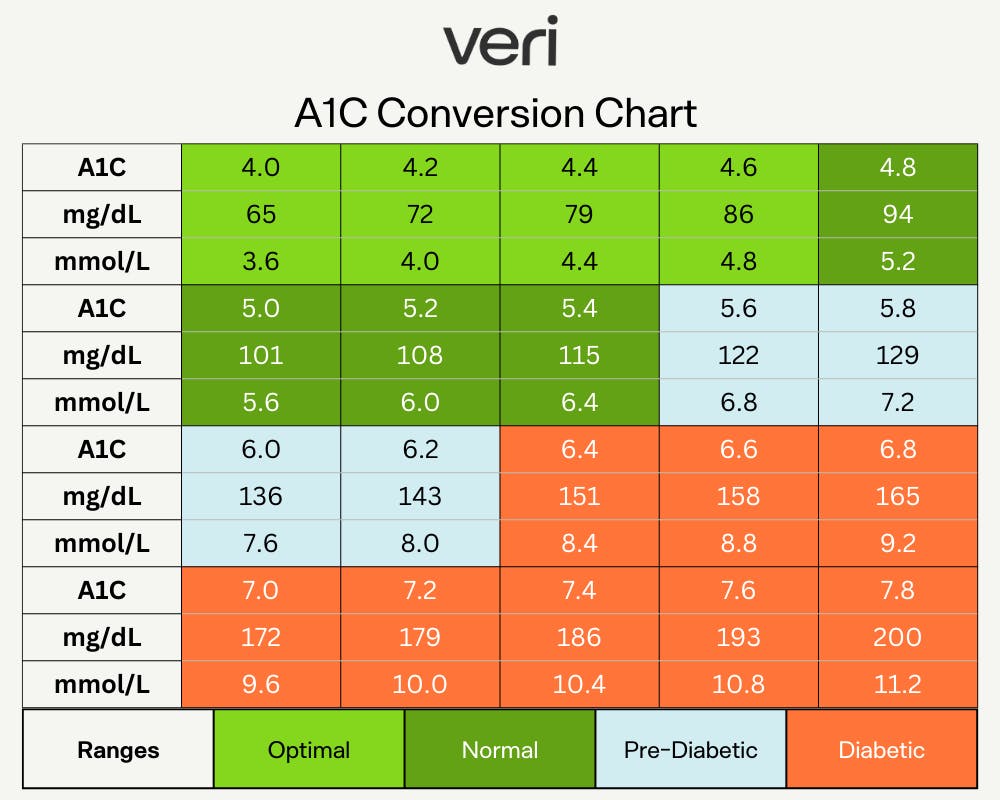
Blood Sugar Conversion Chart and Calculator Veri

Blood Sugar Conversion Table Mmol L To Mg Dl Pdf

CadeldLynch
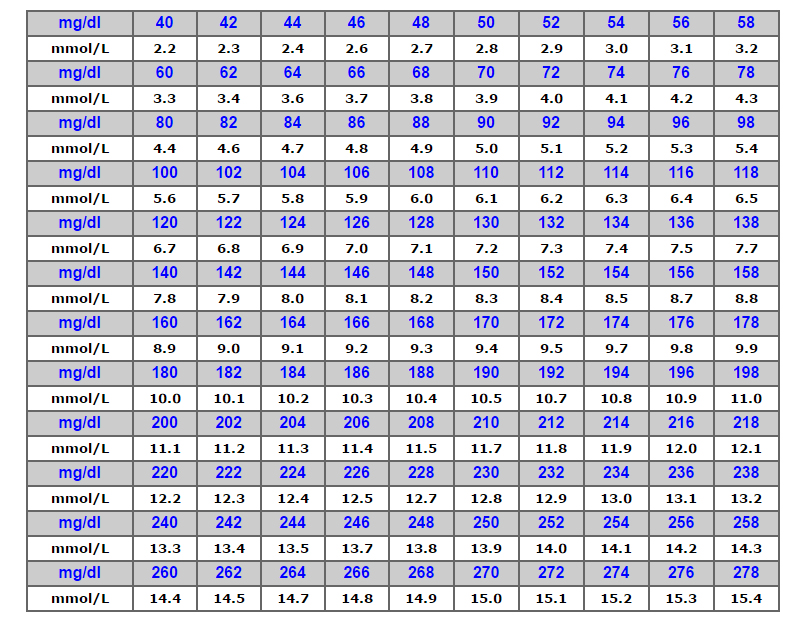
CulináriaReceitas Mauro Rebelo Tabela Conversão mg/dl para mmol/L Aparelho de Glicose
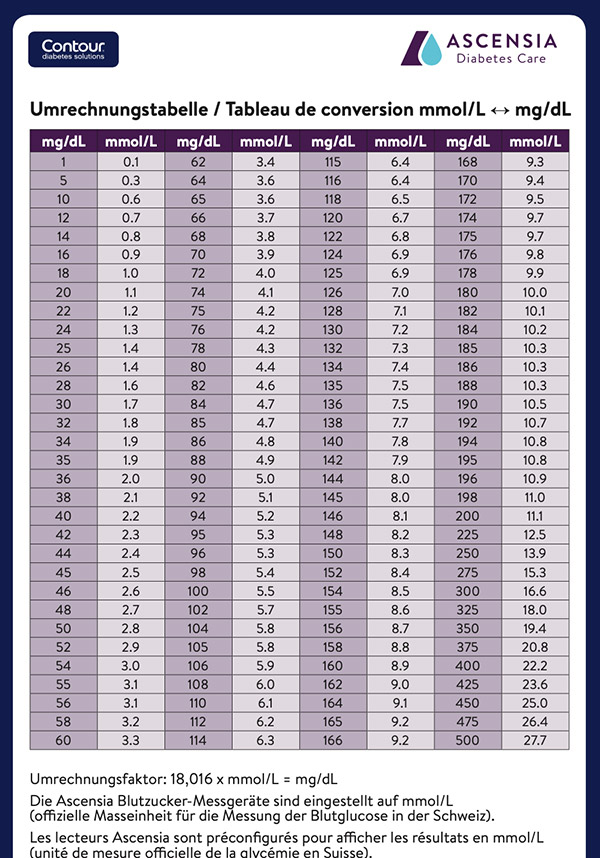
Téléchargez des agendas, des brochures d’information et des guides d’utilisation

Tabella Conversione Emoglobina Glicata Medicidiercolanoit Porn Sex Picture
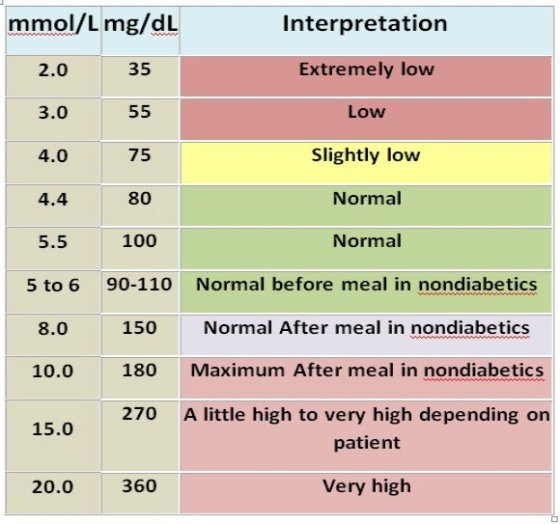
How to convert mmol/l to mg/dl?
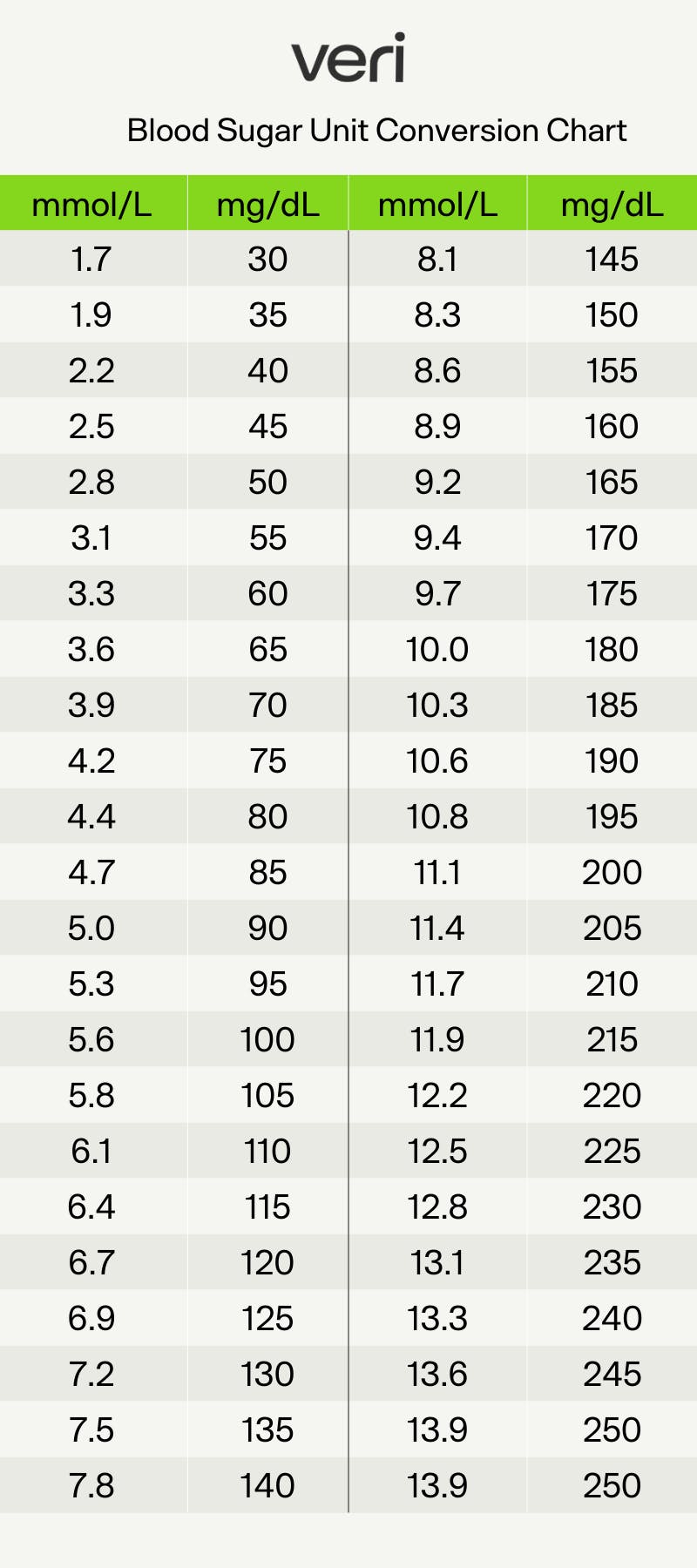
Blood Sugar Conversion Chart and Calculator Veri
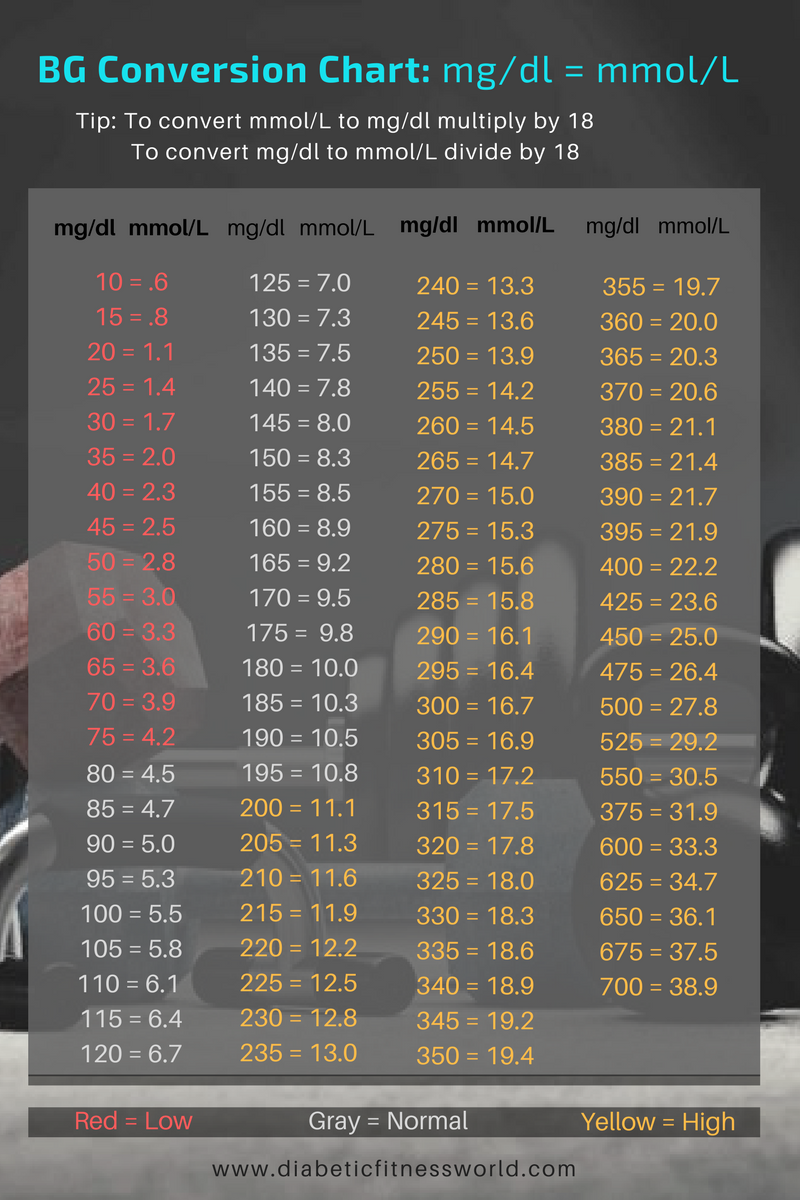
Blood Sugar Conversion Table Mmol L To Mg Dl

Conversione glicemia mg/dL mmol/L

Как преобразовать значения уровня сахара в крови mg/dl в mmol/l Глюкометр прибор для измерения
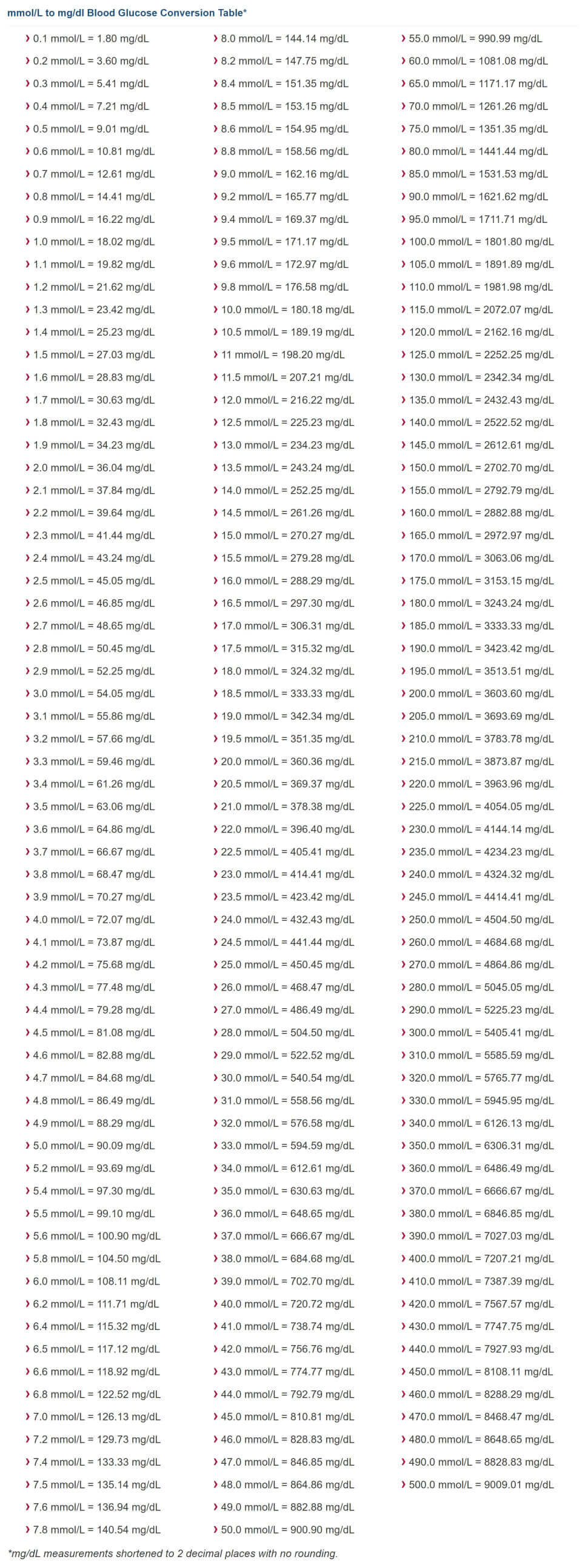
Printable Blood Sugar mmol/L to mg/dl Conversion Chart Disabled World

This entry was posted in Diabetes , Endocrinology . Bookmark the permalink
mg/dL ↔ mmol/L Calculadoras UCI Selecciona Urea BUN Sodio Potasio Calcio Magnesio Fosfato Cloruro Creatinina Bilirrubina Ac.Urico Colesterol Trigliceridos Glucosa Lactato. mmol/L, µmol/L, mg/dL, mg/100mL, mg%, mg/L, µg/mL, mEq/L Calcium is the most abundant mineral element in the body with about 99 percent in the bones primarily as hydroxyapatite. The remaining calcium is distributed between the various tissues and the extracellular fluids where it performs a vital role for many life sustaining processes.


